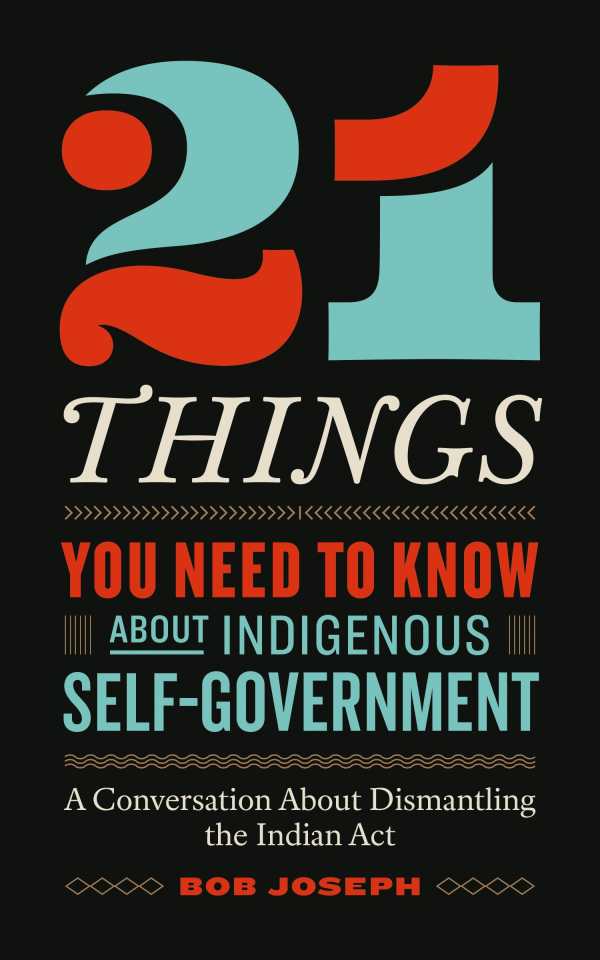21 Things You Need to Know About Indigenous Self-Government
A Conversation About Dismantling the Indian Act
The forceful political science survey 21 Things You Need to Know About Indigenous Self-Government deepens understanding of systemic injustice against Indigenous communities.
This persuasive political science text from Indigenous relations trainer Bob Joseph, the founder of Indigenous Corporate Training, addresses the affairs of Indigenous Canadians with clarity and a quiet sense of injustice.
Dissecting Canada’s most enduring piece of colonial legislation and the far-reaching harms it continues to inflict on Indigenous people, and Indigenous women in particular, the book addresses twenty-one aspects of the Consolidated Indian Act of 1876—each via its own chapter—that undermined, disempowered, and disenfranchised Indigenous communities across Canada’s history. These policies, for example, banned cultural ceremonies and dictated band membership. Each infraction is framed with historical background and legal insight. The result is a text that is informative and most often accessible, though legalese sometimes clogs its progression.
Beyond reflecting on this history, the book also recommends means of dismantling ignorance and promoting reconciliation, even as it acknowledges how far there is to go. Its arguments are both implicit and explicit, as when it indicts the Consolidated Indian Act as an instrument of cultural genocide. It also includes harrowing testimonies of gendered injustice: Indigenous women lost their legal status if they married non-Indigenous men, while Indigenous men could confer status onto their non-Indigenous wives. This patriarchal clause is shown to have separated thousands of women from their communities, denying them access to on-reserve housing and services, even if they were widowed or divorced.
The book’s tone is measured, firm, and accessible, making a complex subject approachable to all. Not just a record of suffering, it documents injustices with clarity and frames recommendations for survival. It moves from a plainspoken, direct opening section into an argument toward action.
Tools including classroom discussion questions, timelines, and legislative excerpts make it a useful resource, and its robust sourcing builds credibility. However, its encouragements toward action are somewhat amorphous, with considerations—of what true reconciliation might look like, whether the Consolidated Indian Act could reformed instead of abolished, and what mechanisms would ensure that power was returned to the community—explored but not answered in definitive terms. Indeed, the book resists becoming prescriptive, instead gesturing toward collective responsibility. It implies that transformation requires discomfort, sustained attention, and political will.
The astute and informative political science survey 21 Things You Need to Know About Indigenous Self-Government addresses the structural architecture of colonialism in Canada, naming injustices that continue to restrict the lives of Indigenous people.
Reviewed by
pine breaks
Disclosure: This article is not an endorsement, but a review. The publisher of this book provided free copies of the book and paid a small fee to have their book reviewed by a professional reviewer. Foreword Reviews and Clarion Reviews make no guarantee that the publisher will receive a positive review. Foreword Magazine, Inc. is disclosing this in accordance with the Federal Trade Commission’s 16 CFR, Part 255.

